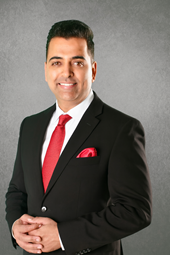How Do You Choose the Right Financial Advisor for Your Needs?

How Do You Choose the Right Financial Advisor for Your Needs?
Choosing a financial advisor isn’t just about finding someone who understands money—it’s about finding a trusted partner who understands your financial goals, challenges, and long-term vision. In today’s complex economy, with fluctuating interest rates, evolving tax laws, and unpredictable markets, the right financial advisor can help you build, preserve, and grow your wealth with confidence.
But with so many professionals claiming to be “financial experts,” how do you decide which advisor truly fits your needs?
1. Identify Your Financial Goals First
Before hiring a financial advisor, clarify what you’re hoping to achieve. Are you preparing for retirement, managing investments, minimising taxes, or saving for your child’s education? Different advisors specialise in different areas:
- Investment Advisors focus on portfolio growth and diversification.
- Tax Advisors (CPAs) emphasise compliance, deductions, and planning.
- Comprehensive Financial Planners offer an all-in-one approach, including budgeting, estate planning, and insurance review.
- Defining your goals helps you match the advisor’s strengths with your financial priorities.
2. Look for Credentials and Qualifications
In the United States, not all financial advisors are equally qualified. Look for professionals who are Certified Public Accountants (CPA), Certified Financial Planners (CFP®), or Enrolled Agents (EA). These credentials indicate rigorous education, testing, and adherence to ethical standards. A CPA like Vinita Chaudhary has specialised expertise in tax optimisation, financial reporting, and compliance—crucial for both individuals and business owners.
3. Understand How They Are Compensated
Advisors can earn through:
- Fee-only structures: A transparent, flat fee or hourly rate.
- Commission-based models: Earnings from selling financial products.
- Fee-based hybrids: A combination of the two.
- Transparency is key. Fee-only advisors often avoid conflicts of interest since they aren’t incentivised to sell products. Always ask upfront how fees are calculated and ensure they align with your financial capacity and comfort level.
4. Evaluate Their Experience and Client Base
Ask potential advisors about their typical clients. Do they primarily serve individuals, families, or small businesses? Do they understand your industry or income structure?
For example, a business owner might need help with cash flow management, tax filings, and retirement plan design, while a salaried employee may prioritise investment strategy and debt reduction. An experienced advisor brings real-world insights, anticipates potential issues, and provides actionable strategies tailored to your life stage and goals.
5. Assess Communication and Accessibility
Your financial advisor should be proactive, approachable, and available when needed. Financial planning isn’t a one-time task—it’s a continuous process. Make sure your advisor offers periodic reviews, updates you on tax law changes, and checks in before key financial deadlines like tax season or 401(k) contribution cutoffs.
Accessibility also extends to technology—does your advisor provide secure online portals, virtual consultations, or digital document sharing? Convenience matters as much as expertise.
6. Review Their Fiduciary Responsibility
A fiduciary advisor is legally bound to put your best interests first. This means their guidance should be objective, conflict-free, and designed to benefit you—not their commission structure. Always ask, “Do you act as a fiduciary at all times?” A reputable professional will have no hesitation confirming this.
7. Seek Transparency and a Clear Plan
A reliable advisor should provide a detailed roadmap of how they’ll help you reach your goals. This includes:
- An overview of your current financial situation
- Measurable objectives
- Tax-efficient investment strategies
- Regular performance reviews
- Transparency builds trust—and trust builds long-term financial success.
8. Don’t Underestimate Compatibility
Beyond numbers, financial advising is personal. You’ll be sharing details about your income, debts, and even family priorities. Choose someone who listens, explains clearly, and respects your comfort level.
A good advisor doesn’t just manage money—they educate and empower you to make informed decisions.
Conclusion (About the Business)
Finding the right advisor can redefine your financial journey. If you’re looking for personalised, transparent, and data-driven financial guidance, Jain Consulting – Vinita Chaudhary, CPA, based in Raleigh, NC, is an excellent choice. With deep expertise in financial consulting, tax planning, accounting, and wealth management, Vinita Chaudhary helps individuals and businesses create sustainable financial strategies. Her firm’s mission is simple: to make finance approachable, compliant, and results-driven.
Searching for Financial & Taxation Services? Let’s make your search simple with professionals!
Take your Financial & Taxation Services to the next level with Sulekha. Boost your online visibility, connect with more clients, and grow effortlessly!
Blogs Related to Financial & Taxation Services

How Do You Find the Right Life Insurance Policy?
How Do You Find the Right Life Insurance Policy? Life insurance is more than a safety net—it’s a cornerstone of sound financial planning. Whether you’re protecting your family’s future, securing your business, or planning your estate, finding the ri

Why Is Investment Management Critical for High-Net-Worth Individuals?
Why Is Investment Management Critical for High-Net-Worth Individuals? Wealth accumulation is an achievement—but managing it effectively is an even greater challenge. For high-net-worth individuals (HNWIs), wealth management requires precision, fores

Are You Paying Too Much in Taxes? What You Need to Know About Deductions
Are You Paying Too Much in Taxes? What You Need to Know About Deductions Every year, millions of Americans overpay their taxes—often without realising it. The reason? Missed deductions, overlooked credits, and a lack of strategic tax planning. Wheth

Ready to Start a Business, But Is an Incorporation Service Right for You?
Ready to Start a Business, But Is an Incorporation Service Right for You? Starting a business is an exciting milestone—but it’s also a decision that carries long-term financial and legal consequences. One of the most important early steps is decidin

Do You Make These Mistakes When Applying for Financial Aid?
Do You Make These Mistakes When Applying for Financial Aid? Financial aid can make the difference between attending your dream college and settling for an alternative. Yet, every year, millions of students and parents lose out on potential grants, s

How Do You Choose the Right Financial Advisor for Your Needs?
How Do You Choose the Right Financial Advisor for Your Needs? Choosing a financial advisor isn’t just about finding someone who understands money—it’s about finding a trusted partner who understands your financial goals, challenges, and long-term vi




